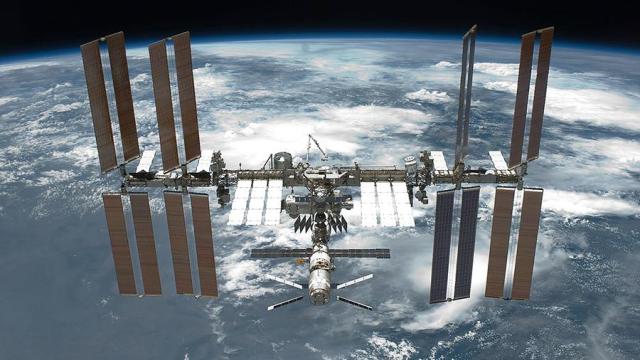The deterioration of the International Space Station (ISS) can have serious consequences, up to a catastrophe. This opinion was expressed on Monday, April 19, by Deputy Prime Minister of the Russian Government Yuri Borisov.
"We cannot endanger the lives of [astronauts]. The situation that today is associated with the aging of the structure, iron, can lead to irreversible consequences-before the disaster. This should not be allowed, " he said on the TV channel "Russia 1".
According to him, Russia is able to independently finance the project of a new space station, but is ready to invite foreign partners to cooperate. Borisov noted that the new Russian station will become a transit point for flights to the Moon.
"Of course, this is one of the new features. And, perhaps, it is very seriously considered, the station, as a kind of transfer point, such an intermediate one, in particular for flights and exploration of the Moon and near-lunar space, " Borisov said.
Earlier in the day, cosmonaut Sergey Ryzhikov, who returned to Earth on April 17 after an expedition, said that there are no visible reasons for reducing the life of the International Space Station (ISS).
According to him, the astronauts who returned from the ISS can only state the good condition of the object, despite the fact that some of the station's modules are already beyond the warranty resource. At the same time, he recalled that technology is developing and cosmonautics does not stand still.
Also on Monday, space expert, corresponding member of the Russian Academy of Cosmonautics (RAK) Andrey Ionin, in an interview with Izvestia, expressed confidence that Russia should organize a new near-Earth international project with the participation of its strategic partners.
Borisov announced Moscow's plans to withdraw from the ISS project from 2025 and start creating its own orbital station the day before. On the same day, the press service of Roscosmos reported that the decision to continue work on the Russian segment of the station will be made after 2024.
In November 2020, the Russian National space station was proposed at the Council of the Russian Academy of Sciences by the Energia Corporation. They explained that a number of elements at the station are seriously damaged and cannot be replaced, and after 2025, their "avalanche-like failure" is predicted.
In the same month, it became known about plans to extend the work of the ISS until 2030.
The ISS was put into orbit in 1998, and two years later the first astronauts settled on the station. The participants of the international project are 14 countries: Russia, the United States, Japan, Canada and the European Space Agency members Belgium, Germany, Denmark, Spain, Italy, the Netherlands, Norway, France, Switzerland, and Sweden. The station will expire in 2024.

